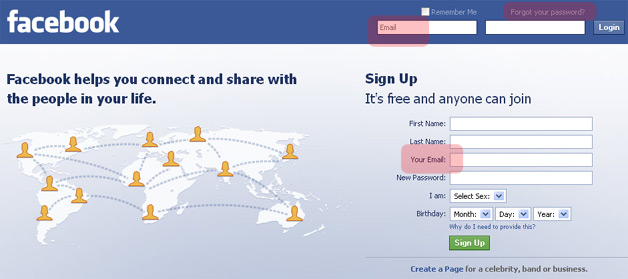Facebook thinks email is dying. Classic. How many times have we heard this now? Facebook COO Sheryl Sandberg gave a speech at the Nielsen Consumer 360 conference recently, essentially claiming as much.
Do you think email is dying? Comment here.
"In consumer technology, if you want to know what people like us will do tomorrow, you look at what teenagers are doing today, and the latest figures say that only 11% of teenagers email daily. So email (I can’t imagine life without it) is probably going away. So what do teenagers do? They SMS and increasingly they use social networking." (hat tip to WebGuild.org)
First off, Facebook couldn’t exist without email. You need an email address to sign up and to log-in. Many of us rely on email for notifications from Facebook to know when someone has sent us a message, commented on our posts, invited us to an event, tagged us in a photo, etc. In fact, I’d be curious to see how frequently the average Facebook user would come back to Facebook daily without email notifications.

Email lubricates social interactions on Facebook, and I’d be very curious to see how successful Facebook would be without any email integration. I suspect it would die.
To be fair, Sandberg was looking to the future, and not the present when she made this claim. She even said that she couldn’t imagine life without email. It’s interesting, because Facebook is in some ways helping keep email relevant for the reasons mentioned above (though email certainly doesn’t need Facebook’s help to stay relevant).
Facebook requires you to use email to sign-up and log-in, but we are seeing more and more open protocols being used around the web for ID authentication. There are also not-so-open protocols in use, like Facebook Connect. I can log-in to a wide variety of sites/apps with my Facebook ID, but I can’t log-in to Facebook with anything other than my email address. If Facebook thinks email is dying, does that mean it will adopt some other open authentication protocols? Don’t these protocols generally come back to having an email address in the first place anyway?
We’ve written about why social media isn’t killing and will not kill email several times in the past. I don’t want to rehash all of the same points here, so I’ll simply reference a couple of these articles:
– 10 Reasons Social Media isn’t Replacing Email
– Spam Will Not Keep You Away from Email
The popularity of specific social networks comes and goes, but email has been around for a while, and has really shown no signs of going anywhere. Here’s something to consider – how many years has your inbox been flooded with spam? Has it caused you to use email any less? Granted, Facebook does continue to grow, even in the face of massive privacy concerns, but that’s hardly an indication that it could replace email. Sandberg didn’t suggest Facebook itself would replace email, but that SMS and social networking in general would. We’ll see. If Facebook hopes to be a significant part of that replacement on the social networking end, they’re probably going to have to play a little nicer with the open web movement.
I’ll come back to the conclusion we always reach. There is room for both email and social networks. Just like there is now, there will be in the future. As far as marketing is concerned, social networks appear to be greatly enhancing email campaigns. A recent study from GetResponse found that campaigns utilizing these networks were able to increase click-through-rates by 30%.
Do you think email is in any danger of extinction at the hands of social networks and/or SMS? Please share your thoughts in the comments.




 WebProNews is an iEntry Publication
WebProNews is an iEntry Publication